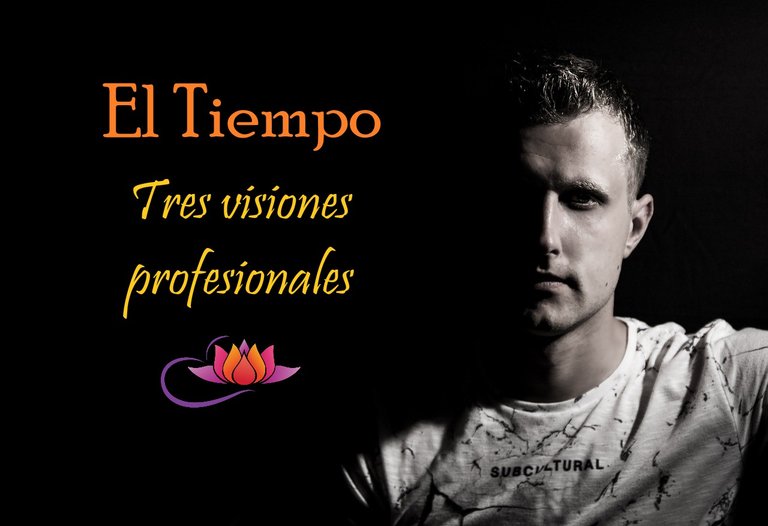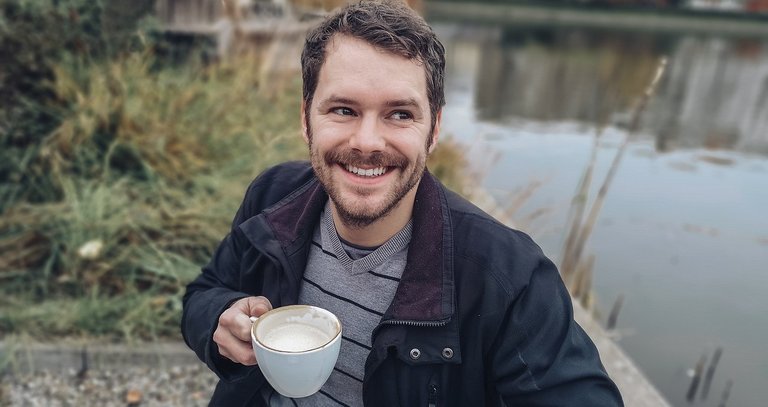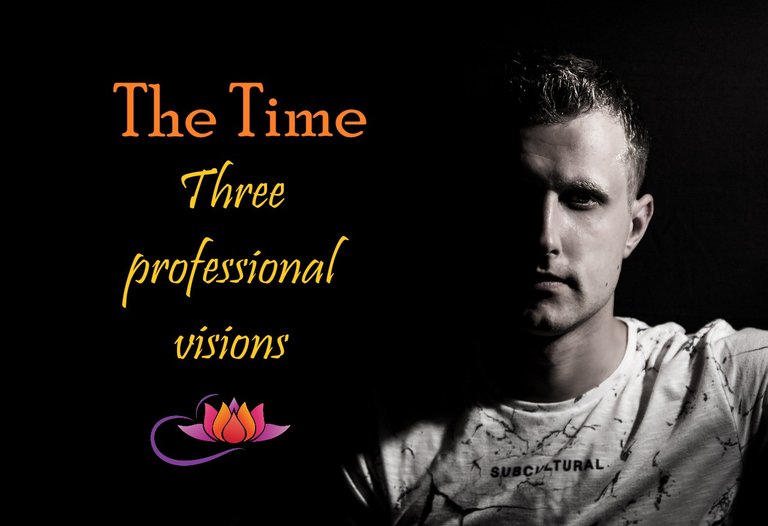

En mi último post sobre la importancia de gestionar el tiempo en forma correcta, hablamos sobre la sensación del tiempo que tenemos, que es una sensación subjetiva que nos dice que el tiempo se alarga o se acorta dependiendo de lo que hacemos o vivimos.
Helena, una amiga usuaria y creadora de contenido, @helicreamarket, me respondía que es importante gestionar porque realmente no tenemos tanto tiempo como creemos.
Y como he decidido escribir un poco acerca de este valor no cambiable, no medible e incontrolable, me di a la tarea de preguntarles a varios profesionales sobre la sensación de tiempo que manejan en sus vidas, y he quedado realmente sorprendido con las lecciones recibidas.


Maribel, doctora en educación
La profesora Maribel tiene un doctorado en educación e imparte clases de inglés, francés y español.
Es una mujer tranquila y serena; y en nuestra conversación sobre el tiempo y la percepción de este, hizo mucho hincapié en la serenidad como base para poder organizarse y realizar las actividades en forma priorizada.
“El tiempo es un problema para todo el mundo y cuando nos comprometemos con un trabajo de enseñanza hacia otros, siempre vamos a tener falta de tiempo; por eso es importante que prioricemos las actividades diarias.”
“Yo me organizo de domingo a domingo, y llevo una agenda semanal, la cual voy revisando día a día; sin embargo, en el día mismo organizo cuáles son las actividades que voy a realizar en la mañana y cuáles son las que realizo ya para finalizar el día.”
“Lo importante es mantener la tranquilidad y serenidad, y eso es un trabajo interno que debe realizar cualquier educador, porque es una profesión muy demandante.”

Luis Martínez, orientador
El doctor Luis, como se le conoce, porque atiende pacientes en la escuela de educación especial y forma parte del equipo de trabajo de esa institución, nos habló de que siempre hay tiempo para hacer todas las cosas que nos competen.
“Pero hay que ponerle un poquito de cariño, que no significa más que involucrar las emociones en forma saludable.”
“Esto de estudiar la percepción que la gente tiene del tiempo en forma subjetiva es algo nuevo realmente, y existen muchos trabajos al respecto en la psicología moderna sobre la subestimación y sobreestimación de cómo va pasando el tiempo según cada individuo.”
“Siempre se conjugan las emociones al percibir el tiempo; por eso hacemos las cosas que nos gustan, porque además de que lo disfrutamos, también pasa en forma rápida y podemos darle sentido a cada actividad.”
Para él, hay tareas que se tardan mucho, como le pasa con las actividades de organización:
“Cuando estoy con los pacientes en la consulta o en las actividades de campo de tipo terapéutico, el tiempo pasa volando; pero cuando me corresponde realizar actividades administrativas, una hora puede parecer una eternidad.”
“Yo utilizo aplicaciones que me miden las actividades y las notificaciones del teléfono, que me dicen cuándo debo comenzar una actividad o que me recuerdan cuál tengo pendiente para no perder el sentido del tiempo.”

Rosa, médico
No suelo colocarle el femenino a la palabra médico, por eso, para mí, Rosa es uno de los médicos que más aprecio, que le tengo más confianza y con la que puedo compartir muchas cosas sin preocuparme de nuestra conversación.
Sobre el tiempo, ella me recordaba que nuestra profesión es bastante demandante, pero que nuestros conocimientos permiten entender, por ejemplo, que para el inconsciente solo existe el presente y que nuestra mente divaga entre el ayer, el ahora y en las proyecciones hacia el futuro.
“Necesitamos tener un buen estado de conciencia, es decir, una mente consciente que nos ancle al momento en el que estamos viviendo.”
Es cierto lo que dijo Luis Martínez anteriormente, que la percepción del tiempo siempre va a estar influida por las emociones, pero si logramos controlar las emociones podemos anclarnos mejor en el presente y percibir las cosas como son.
“Todo lo que sentimos y las experiencias que vivimos son del presente; es nuestra capacidad interpretar al pasado y prever el futuro.”
“A propósito de esto, hay que entender que el tiempo solo está sometido a la observación e interpretación de las personas, no podemos cambiarlo; por eso debemos gestionarlo de la mejor manera posible y la organización es básica, pues, no olvidemos que el tiempo se percibe con tintes emocionales."

El tiempo implacable como objeto de estudio
Esta es una de las primeras publicaciones que estaré haciendo sobre el tiempo; y es importante que revisemos este aspecto de nuestra vida, porque estamos malgastándolo.
La cantidad de información que manejamos cada día, hace que invirtamos muchos minutos y horas en redes sociales, en historias que no nos están permitiendo disfrutar de la vida como es.
Exploraremos alternativas para organizarnos conscientemente, para tener disfrute en cada área de nuestra vida, aprovechando al máximo nuestro tiempo.
Un artículo sobre la apreciación del tiempo de Sesha, un hermano colombiano, filósofo oriental, que escribe en el blog vedantaadvaita.com en el 2016, resaltó, que el ser humano se enfrasca en recordar su pasado vislumbrando en forma momentánea el presente, y se contenta con las inexistentes posibilidades futuras, por lo que, el miedo, la duda o la esperanza, se transforman en actividades mentales que, a la larga, no son más que un carrusel generador de emociones que debemos controlar.

Nota:
Los nombres de mis amigos entrevistados, o mejor, con quienes sostuve conversaciones sobre el tiempo y la sensación subjetiva de este, han sido cambiados como una forma de preservar la privacidad. Y solo se han utilizado extractos de la conversación.


Time, the implacable... -Three professionals, three reflective visions-


In my last post about the importance of managing time correctly, we talked about the feeling of the time we have, which is a subjective feeling that tells us that time is getting longer or shorter depending on what we do or live.
Helena, a user friend and content creator, @helicreamarket, answered me that it is important to manage because we really don't have as much time as we think.
And since I decided to write a bit about this unchangeable, unmeasurable and uncontrollable value, I decided to ask several professionals about the sense of time they manage in their lives, and I have been really surprised with the lessons received.


Maribel, Ph.D. in education
Professor Maribel has a doctorate in education and teaches English, French and Spanish.
She is a calm and serene woman; and in our conversation about time and the perception of it, she put a lot of emphasis on serenity as a basis for being able to organize herself and carry out activities in a prioritized way.
"Time is a problem for everyone and when we commit ourselves to a teaching job towards others, we are always going to be short of time; that is why it is important that we prioritize daily activities."
"I organize myself from Sunday to Sunday, and I keep a weekly agenda, which I review day by day; however, on the day itself I organize which activities I am going to do in the morning and which ones I already do by the end of the day."
"The important thing is to keep calm and serenity, and that is an internal work that any educator must do, because it is a very demanding profession."

Luis Martínez, counselor
Dr. Luis, as he is known, because he attends patients at the special education school and is part of the work team of that institution, told us that there is always time to do all the things that we are responsible for.
"But you have to put a little bit of love into it, which means nothing more than involving emotions in a healthy way."
"This studying people's perception of time in a subjective way is something new really, and there is a lot of work on this in modern psychology on the underestimation and overestimation of how time goes by according to each individual."
"There are always emotions conjugated when perceiving time; that's why we do the things we like, because besides the fact that we enjoy it, it also passes quickly and we can make sense of each activity."
For him, there are tasks that take a long time, as happens to him with organizational activities:
"When I'm with patients in the office or in therapeutic-type field activities, time flies by; but when it's up to me to perform administrative activities, an hour can seem like an eternity."
"I use apps that measure my activities and phone notifications that tell me when to start an activity or remind me which one I have pending so I don't lose track of time."

Rosa, doctor
I don't usually use the feminine for the word doctor, that's why, for me, Rosa is one of the doctors that I appreciate the most, that I trust the most and with whom I can share many things without worrying about our conversation.
About time, she reminded me that our profession is quite demanding, but that our knowledge allows us to understand, for example, that for the unconscious there is only the present and that our mind wanders between yesterday, now and projections into the future.
"We need to have a good state of consciousness, that is, a conscious mind that anchors us to the moment in which we are living."
It is true what Luis Martinez said earlier, that the perception of time is always going to be influenced by emotions, but if we manage to control emotions we can better anchor ourselves in the present and perceive things as they are.
"Everything we feel and the experiences we live are of the present; it is our ability to interpret the past and foresee the future."
"Regarding this, we must understand that time is only subject to the observation and interpretation of people, we cannot change it; that is why we must manage it in the best possible way and organization is basic, because, let's not forget that time is perceived with emotional dyes."

Implacable time as an object of study
This is one of the first posts I will be making about time; and it is important that we review this aspect of our life, because we are wasting it.
The amount of information we handle every day, makes us invest many minutes and hours in social networks, in stories that are not allowing us to enjoy life as it is.
We will explore alternatives to organize ourselves consciously, to have enjoyment in every area of our life, making the most of our time.
An article on the appreciation of time by Sesha, a Colombian brother, oriental philosopher, who writes in the blog vedantaadvaita.com in 2016, highlighted, that the human being is engrossed in remembering his past momentarily glimpsing the present, and is content with the nonexistent future possibilities, so that, fear, doubt or hope, are transformed into mental activities that, in the long run, are nothing more than a carousel generator of emotions that we must control.

Note:
The names of my friends interviewed, or rather, with whom I held conversations about time and the subjective sensation of it, have been changed as a way to preserve privacy. And only excerpts from the conversation have been used.

Emilio Ríos – Venezuela
@emiliorios


- Barras separadoras y logo de English, editadas en Paint, de:
Separator bars and English logo edited in Paint, from:
Pixabay-Phendrich
Cintillo personalizado de @emiliorios con el logo de #Hive, realizado por la excelente creadora @mosa71
Custom @emiliorios banner with the #Hive logo, made by the excellent content creator @mosa71Logo de Twitter tomado de la plataforma de la red social.
Twitter logo taken from the social network platform.Imagen de agradecimiento, tomando el logo de nuestra comunidad y editada en Paint, de:
Thank you image, taking our community logo and edited in Paint, by:
Pixabay-Souandresantana
- Logo de la comunidad utilizado en las imágenes, de:
Community logo used in the images, from:
Pixabay-2405360
- Si lo deseas, puedes seguirnos en:
If you wish, you can follow us at:




